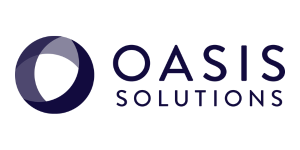Customer relationship management (CRM) is a widely implemented model for managing a company’s interactions with customers, clients and sales prospects. It involves using technology to organize, automate and synchronize business processes- principally sales activities but also marketing, customer service and technical support.
Essentially, CRM is a strategy that a company uses to handle customer interactions. Every day, employees interact with customer and prospects. CRM is the underlying applications and business processes that help manage customer information, activities and conversations.
CRM software:
- Helps an enterprise enable its marketing departments to identify and target their best customers, manage marketing campaigns and generate quality leads for the sales team.
- Assists the organization to improve telesales, account and sales management by optimizing information shared by multiple employees, streamlining existing processes.
- Allows the formation of individualized relationships with customers, with the aim of improving customer satisfaction and maximizing profits.
- Provides employees with the information and processes necessary to know their customers, understand and identify customer needs and effectively build relationships between the company, its customer base and distribution partners.
Many CRM software packages exist to help companies manage their customer relationship processes. The software helps by storing customer information in an easy-access format. It is easy for employees to add notes, information, compile reports and track activities. By analyzing this information you can make better decisions enabling you to close more business, reduce the cost of service and keep your customers satisfied.
Organizations are turning to CRM software to help them manage their customer relationships. Today there are seemingly limitless options for CRM including on-premise and cloud hosted options. Many CRM options integrate seamlessly into ERP systems or other software your company many already be using.
CRM is already affecting everyday life though you may be unaware of it.
Everyday Life CRM Example: Rewards card programs offered by many supermarkets. The store gives a free card to customers that gives them access to special deals and discounts when the card is swiped during checkout. The card tracks everything the customer buys and allows the store to create an extremely detailed customer profile based on buying habits. This profile allows the store to target customers with coupons and other programs to motivate additional purchases.


